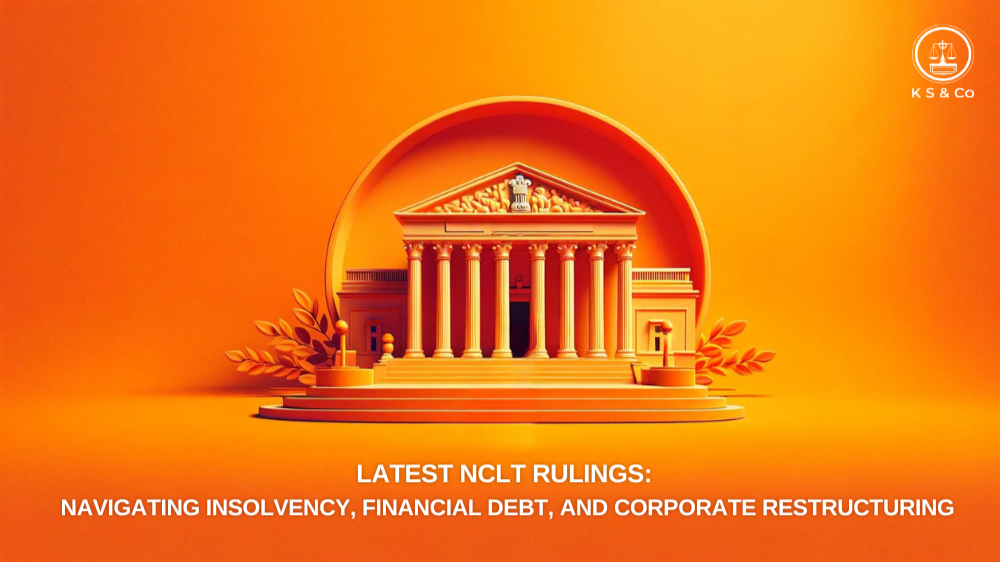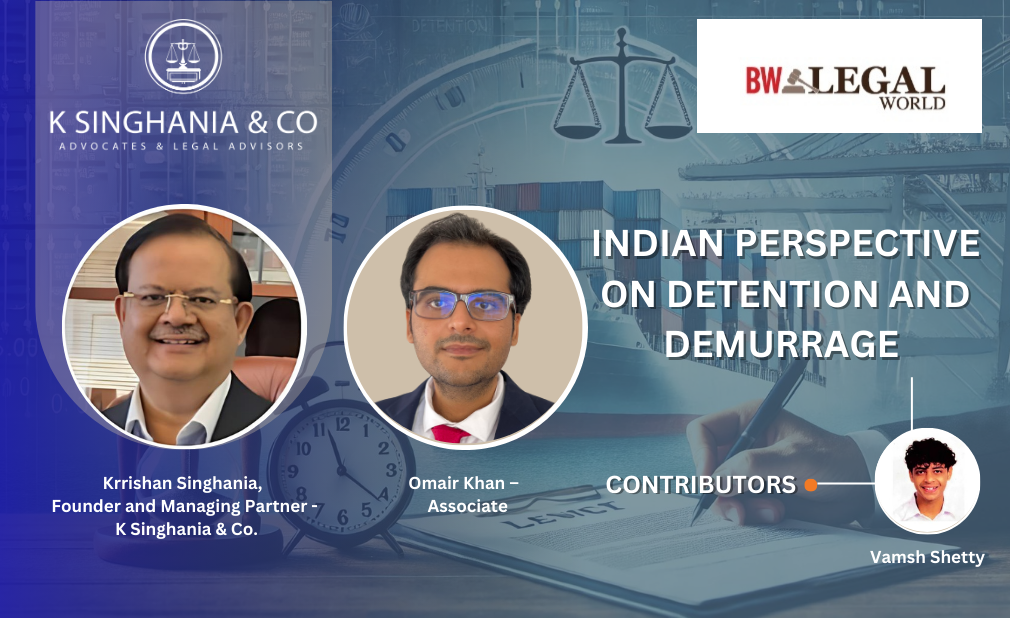Corporate Law governs the rights, relations and conduct of persons, companies, organizations and businesses and regulates the interaction between corporations, investors, shareholders, directors, employees, creditors and other stakeholders such as consumers, community and environment. It is an important legal framework to ensure the smooth functioning of corporate bodies which is supported by umpteen regulations released by SEBI. SEBI (Listing Obligation and Disclosure Requirements) Regulations, 2015 is one such framework that serves to consolidate and streamline the provisions of various listing agreements in operation for different segments of the capital market.
Cross Border Merger Regulations, 2018 notified by RBI.
RBI has notified the Foreign Exchange Management (Cross Border Merger) Regulations on 20th March, 2018 which has brought various changes to the merger regime with respect to both inbound and outbound mergers.
1. Inbound Mergers
The 2018 Merger Regulations for inbound mergers provides that an Indian company should comply with Foreign Exchange Management (Transfer or Issue of Security by a Person Resident Outside India) Regulations, 2017 to issue/transfer any security to a person resident outside India. Further, where the foreign company is a joint venture (JV) / wholly owned subsidiary (WOS) of an Indian company, it shall comply with FEMA (Transfer or Issue of any foreign security) Regulations, 2004 and where the inbound merger results in the acquisition of a step down subsidiary of a JV/WOS, then such acquisition must comply with Regulations 6 and 7 of the above 2004 Regulations. It is pertinent to note that the Regulations provide that any guarantee or borrowing of the Foreign Company, which due to the merger becomes the borrowing of the Indian company must conform to the External Commercial Borrowing/Trade Credit norms within a period of 2 years subject to the condition that no remittance or repayment from India will be made within such period and the conditions with respect to end-use shall not be applicable. Moreover, the office outside India of a Foreign Company shall be deemed to be the branch office of the resultant company and shall be governed by FEMA (Foreign Currency Account by a person resident in India) Regulations, 2015. Lastly, where the resultant company is not permitted to acquire/hold assets/security outside India then the timeframe for selling such assets have been increased from 180 days to 2 years from the date of sanction of the scheme and the liability from the sale proceeds of such overseas assets has to be extinguished within a period of 2 years.
2. Outbound Mergers
The 2018 Merger Regulations provide that a person resident in India shall comply with FEMA (Transfer or Issue of any foreign security) Regulations, 2004 to acquire/hold securities of resultant company and that a resident individual may acquire securities outside India subject to fair market value of such securities as given under the Liberalized Remittance Scheme. Further, any borrowing of the Indian company, which due to the merger becomes the borrowing of the foreign company, shall be repaid as per the terms of NCLT- approved scheme which is subject to obtaining a No-Objection Certificate from the Indian lenders and that the foreign company shall not acquire those Indian borrowings that are not in conformity with the Act or the Rules. Furthermore, the Indian office of the Indian company shall be deemed to be the branch office of the resultant company and shall be governed by FEMA (Establishment in India of a branch office or a liaison office or a project office or any other place of business) Regulations, 2016. It also provides that the resultant company is permitted to open a Special Non-Resident Rupee Account in terms of the FEMA (Deposit) Regulations, 2016 which shall run for a maximum period of 2 years from the date of sanction of the scheme to facilitate any transactions pursuant to an outbound merger. Lastly, where the resultant company is not permitted to acquire/hold assets/security in India then the timeframe for selling such assets has been increased from 180 days to 2 years from the date of sanction of the scheme and the liability from the sale proceeds of such overseas assets has to be extinguished within a period of 2 years.
A clause specifying maximum number of directorships permissible-added in SEBI LODR Regulations.
It should be noted that Regulation 17A has been added in the SEBI LODR Regulations specifying the maximum number of directorship to be held by a director. • It states that a person shall not be a director in more than eight listed entities which will come into effect from April 1, 2019 and in more than seven entities with effect from April 1, 2020. • It is further mandated that a person shall not serve as an independent director in more than seven listed entities. • Furthermore, a person who is serving as a whole time director or a managing director in any listed entity shall serve as an independent director in not more than three listed entities. • The Regulation also specifies that the count for the number of listed entities on which a person is a director or an independent director shall be only those whose equity shares are listed on a stock exchange.
SEBI introduces norms to let InvITs raise capital via preferential issues
The Securities and Exchange Board of India (SEBI) has published guidelines that allows listed infrastructure investment trusts (InvITs) to raise capital by way of preferential allotment to institutional investors. The latest norm issued by the capital markets regulator’s is the latest bid to boost investments in InvIT and real estate investment trusts (REIT), which have failed to generate investor interest despite several regulatory initiatives. The new guidelines states that listed InvITs can now allot units to a minimum of two and a maximum of 1,000 investors in a financial year. Such listed trusts will be required to file placement documents giving complete disclosures and material information, besides stating the objects of the fund raise. These trusts will be required to file their documents with stock exchanges. As per the guidelines, units issued via preferential allotments cannot be priced below the average closing high and low price two weeks preceding the relevant date. SEBI had first introduced rules for InvITs and REITs in 2014, paving the way for listing of such trusts. Two InvITs floated initial public offerings last year but their performance has been lacklustre. This has deterred other InvITs from floating their IPOs. Not a single REIT has been listed in the country. SEBI has time and again relaxed various rules over the past year to make InvITs and REITs popular among investors.
The regime of Independent Directors reinforced
The definition of independent director under Regulation 16 (1)(b) of SEBI LODR Regulations has been widened to include a non-executive director, other than a nominee director, who is not a non-independent director of another company on the board of which any non-independent director of the listed company is an independent director. Further, Regulation 17 (1) has been added with a proviso stating that the Board of Directors of the top 500 listed entities shall have at least 1 independent woman director by April 1, 2019 and the Board of Directors of the top 1000 listed entities shall have at least 1 independent woman director by April 1, 2020. Furthermore, sub-clause (2A) has been added which mandates that the quorum for every meeting of the board of directors of the top 1000 listed entities with effect from April 1, 2019 and of the top 2000 listed entities with effect from April 1, 2020 shall be one-third of its total strength or 3 directors, whichever is higher, including at least 1 independent director. The amendment has added a Regulation 17A which specifies that an independent director cannot serve as an independent director in more than 7 listed entities. It further states that a person serving as a managing director or a whole time director in any listed company cannot serve as an independent director in more than 3 listed entities. Furthermore, under Regulation 19, sub-clause (2A) is added which calls for the quorum of a meeting of the nomination and remuneration committee to be either 2 members or one third of the members of the committee, whichever is greater, including at least 1 independent director in attendance.
Beneficial Ownership – 2017 Amendment to Companies Act, 2013
It is pertinent to note that the provisions relating to beneficial owners of a company have been strengthened through the 2017 Amendment. Section 89 (10) has been added which defines ‘beneficial interest in a share’ as right or entitlement of a person to exercise rights attached to shares or to participate or receive the dividend or other distributions relating to shares. Further, Section 90 of the Act has been amended to include the concept of ‘significant beneficial ownership’ in consonance with the international governance standards and OECD principles. It defines a ‘beneficial significant owner’ as an individual shareholder holding beneficial interest, either alone or together or through one or more persons or trust including non-residents, of not less than 25% in the shares of the company or the right to exercise, or actual exercising of significant influence or control over the company. Furthermore, such individual is obligated to make a declaration about the influence and his nature of interest. This Section also provides for periodic return to be filed by the company and power to the company to enquire into the significant beneficial ownership by giving a notice to an individual.
The definition of “related party” enhanced and their disclosure obligations strengthened.
The provisions with regard to related party have undergone umpteen important changes. The definition of related party under Regulation 2(1)(zb) of the SEBI LODR Regulations has been amended to include a proviso which states that any person or entity belonging to the promoter or promoter group of the listed entity and holding 20% or more of shareholding in the listed entity shall be deemed to be a related party. This expansion of the ‘related party’ definition shall include any other body corporate, Indian or foreign, apart from companies, which could even include a LLP, registered society, trust etc. It also specifies that the related party transaction requirements have to be adhered to by foreign entities that have at least 20% of total voting power or control over the company. Further, the existing law prohibits a related party from voting on a related party transaction involving that party and mandates 75% approval from non-interested shareholders for all related party transactions. The amendment to this provision relaxes the voting restriction in the case of a company where 90 percent or more shareholders or members, in number, are relatives of promoters, or are related parties.






